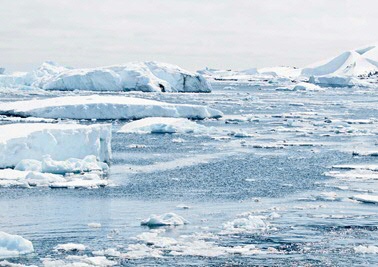Waarom het meer regent in de Arctic

De sterke opwarming van het Noordpoolgebied heeft vele gevolgen. Een ervan is de toename van neerslag in het Arctische gebied. Deze neerslag zal vooral als regen gaan vallen, en veel minder als sneeuw. De vraag is of die toenemende regenval wordt veroorzaakt door meer neerslag, of door een warmere atmosfeer, of door beide. Onderzoeker aan de Rijksuniversiteit Groningen en het KNMI, professor dr. Richard Bintanja, beantwoordt deze vraag in het artikel “The impact of Arctic warming on increased rainfall” dat op dinsdag 30 oktober 2018 in Scientific Reports is verschenen.
Uit de gegevens van gedetailleerde klimaatmodellen blijkt dat gemiddeld over het gehele Arctisch gebied, 70% van de toenemende regenval toegeschreven kan worden aan de opwarming van de atmosfeer. Hierdoor smelt de neerslag in de vorm van sneeuw in de relatief milde atmosfeer en bereikt dan als regen de aardbodem. Het blijkt echter dat dit sterk van locatie tot locatie, en ook van seizoen tot seizoen, kan variëren. Dit komt doordat alleen in een vrij beperkt temperatuurbereik (rond de nul °C) de fractie van de neerslag die als regen valt, sterk toeneemt als het warmer wordt. Precies in die gebieden en seizoenen - bijvoorbeeld rond de Noordpool in de zomer - zal door klimaatverandering de regenval sterk gaan toenemen.
Richard Bintanja: “Deze toenemende regenval heeft een groot effect op het verder afsmelten van zee-ijs en gletsjers, maar ook op de hydrologie, de ecologie, en het afsmelten van de permafrost in het Arctisch gebied.”
